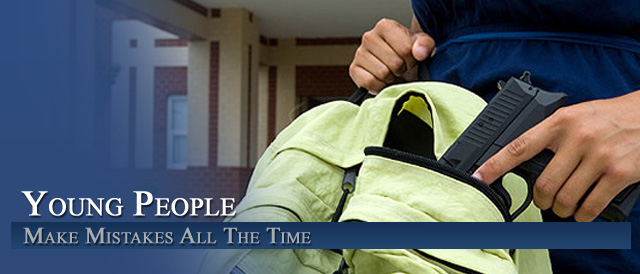
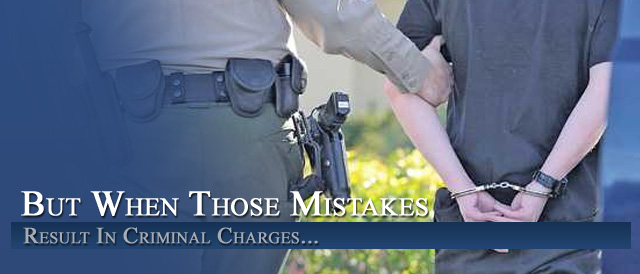
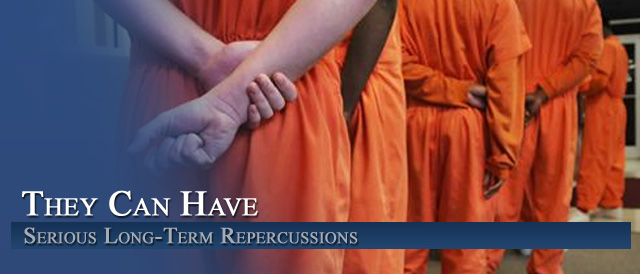
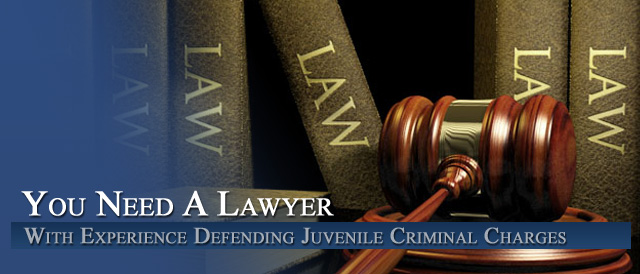
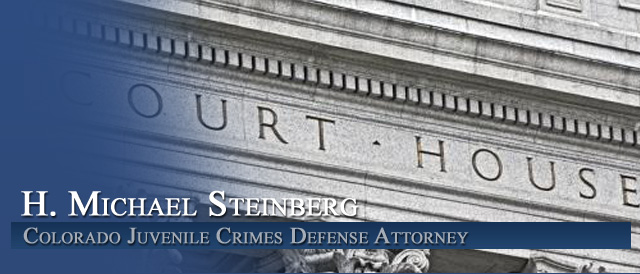
Colorado Juvenile Criminal Law – Dorm Room Searches – Can University Police Search My Dorm Room?
By Colorado Juvenile Crimes Criminal Defense Lawyer
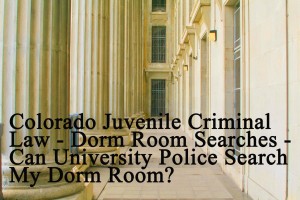 Colorado Juvenile Criminal Law – Dorm Room Searches – Can University Police Search My Dorm Room? – The answer is – it depends whether the dorm room is in a public or a private college.
Colorado Juvenile Criminal Law – Dorm Room Searches – Can University Police Search My Dorm Room? – The answer is – it depends whether the dorm room is in a public or a private college.
Understanding The Overarching Issues In The Area Of Search and Seizure Of College Dorm Rooms
How To Act – What To Say And Do When The Police Come To Your Dorm
Search and seizure law is not only constantly changing it is often unclear. While this article will – hopefully – inform you of the current status of dorm search law – there are more basic and prophylactic methods of making sure you are not the victim of an illegal search.
What parents and college students need to know:
First – Never, ever consent to a search of your dorm room (or any private property for that matter), either verbally or in writing. If the police come to your door and use the friendly question – “Hey it’s for us to come in …o.k.?” The wrong response is “sure.”
When you say “sure”- you are volunteering – waiving – your Fourth Amendment right against unreasonable searches and seizures. Try not to be intimidated. Say this loud and clear but politely, “I need to be clear with you sir, I am not agreeing to a search and I would like to step into the hall.” In the hall, “I do not consent to a search and… I am sorry but you must get a warrant before you can enter my room.”
While we teach our children that the police are our friends and to always be respectful to and cooperative with them, our children must also always be taught to assert their rights, to speak up for themselves, and to make certain their constitutional rights are preserved.
Summary First Point: To the students – You need to make it clear that you are not consenting to a search and you are exercising your right to remain silent. It is NOT true that asserting your rights makes you “look suspicious” or that by remaining silent, it will work against you at trial. This is completely untrue, the DA CANNOT comment on the exercise of your rights at trial – that is not permitted in any state in the nation.
Repeat – if you exercise your right to remain silent, or your right to require a search warrant, that fact, that constitutional exercise of your rights, CANNOT later be used against you at trial. Such a use would be an improper comment on the lawful exercise of your constitutional rights.
Second – Never, ever, ever volunteer incriminating evidence against yourself. If you produce the marijuana, the alcohol, the adderall, the meth, the cocaine – anything, you are framing your fate. “Cooperation” seems like a good idea in the short term – but this may not be a “warning” situation. You may not only be looking at a university disciplinary action, you may be facing a criminal charge, mandatory court appearances, jail or prison, lengthy terms of probation, permanent future employment ending convictions, and the loss of your Federal loans and grants.
Third – Never “Cooperate” period. Often the police suggest that if you cooperate, the prosecutor will go easy on you. This is a usually a ruse – a lie and you should view it as such. These promises never find their way into the police reports and are almost never remembered when the case lands on the prosecuting attorney’s desk. Your RA, administrator, or even the police themselves, can legally trick you. They can expressly or impliedly tell you how the case will come out when they actually know for example – that you WILL be prosecuted as the college has a zero-tolerance for marijuana and even alcohol consumption.
The Plain View Doctrine – A Nightmare If You Are Not Careful
Once the police are in your room with your consent – or they can see your room from the open doorway and get a look into your room – the whole room, they will argue in court – any contraband is now in plain view. Plain view means that if the officer sees something that he or she thinks is – and identifies as – contraband, they now have probable cause to seize the item and to also seek a search warrant for more evidence. The room is secured and a warrant is more easily obtained to search every nook and cranny of that dorm room.
As I discuss below, there is little United States Supreme Court law in the area of dorm room searches. The only case worth addressing as regards the Fourth Amendment rights of college students in dorm room searches is the case of Washington v. Chrisman (1982).
Chrisman lived in a college dorm room and was seen leaving his dormitory carrying a bottle of gin. He was stopped and because he had no ID and the officer followed him to his room to find the ID.
While the officer stood in the doorway to the room, he saw what looked like marijuana seeds and a pipe on Chrisman’s desk. He then entered the room, confirmed his suspicion and after the student and his roommate waived their Miranda rights and consented to a deeper search – that search led to a stash of marijuana and even more serious controlled substances.
The Supreme Court held it was not unreasonable for the police officer to have followed the student to obtain the student’s college ID and ..since he was lawfully present at the doorway, and the marijuana seeds were “in plain view,” (openly visible in the room from the doorway), the Court held that the search and the seizure of the contraband was lawful.
The Fourth Amendment, The Illegal Search and Seizures of Colorado Dormitory Rooms and the Differences Between Privacy Rights On Private and Public College Campuses.
The Fourth Amendment to the United States Constitution reads:
The right of the people to be secure in their persons, houses, papers, and effects, against unreasonable searches and seizures shall not be violated; and no Warrants shall issue but upon probable cause . . . and particularly describing the place to be searched, and the persons or things to be seized.
Two key questions emerge when it comes to analyzing the application of the Fourth Amendment to searches of Colorado dorm rooms:
First: Who is the person or persons conducting the search?
Second: Why are they conducting the search?
Understanding The Right To Privacy – Where You Live Is Your Home
Whether you are at your “home” home or your college home, your rights are the same. You are protected by the Fourth Amendment against any sort of government intrusion.
There’s the rub. A search of your dorm room by college personnel at a private college or university may have a different result than a search of that same dorm room at a public college or university. That is because at a private college or university there is no government action – since the government does not own or run the school. Our national and state based Constitutions protect us against only from government based intrusions – actions not from the private sector.
The confusion in this area – the so called “grey area” is the undeniable fact that almost all campus police departments are commissioned by, and operate under, the local city or state in which they conduct their law enforcement activities. This plays out further in the law in this area below.
Are YOU Signing Away Some Of YOUR Constitutional Rights By Signing A Housing Contract?
Type I Scenarios – Dorm Searches at Colorado Public Colleges and Universities
Following Chrisman – various state and federal court’s decisions in this area have resulted in somewhat divergent results. But some general rules have emerged.
In the 1968 case of Moore v. Student Affairs Committee of Troy State University (1968),
the court held that a university regulation that gave college officials the right to enter dormitory rooms for inspection purposes, amounted to a waiver of the student’s privacy rights as the search was considered a reasonable exercise of university’s responsibility to maintain discipline.
The Role Of The Housing Contract In Dorm Room Searches
In Moore the court found that the student had signed a housing contract that gave officials the right of reasonable inspection. Since then, the law has evolved further and the distinction today is less the housing contract and more the public or private nature of the college.
In 1971 in Piazzola v. Watkins (1971), another federal court found in a serious drug case that:
…students who occupied college dormitory rooms enjoy the protection of the Fourth Amendment despite the existence of a university regulation reserving the right to search dormitory rooms.
And that …a (housing contract) regulation could not have been construed as giving consent to a search pursued primarily for the purpose of gathering evidence for a criminal prosecution.
Otherwise the regulation would have been an illegal attempt to force students to waive their constitutional right to be free from unreasonable searches and seizures as a condition of residing in college dormitories.
In 1975 in Smyth v. Lubbers (1975), a court of appeals found that waivers in college housing contracts do not act as waivers of their constitutional rights under the Fourth Amendment.
Type II – Scenarios – Dorm Searches at Colorado Private Colleges and Universities
Private colleges and institutions are just that, private, there is no governmental action or intrusion and therefore the authority of the school is much greater. Officials at private colleges are not subject to Fourth Amendment constraints when they search students’ dormitory rooms unless they act in concert with law enforcement authorities.
The dorm housing contracts discussed above are now private housing contracts with no state involvement. The same searches that may be illegal at public colleges and universities may now be legal at private schools.
In 1996, in the case of State v. Burroughs, the college student involved signed a campus housing contract that allowed for unannounced and unscheduled searches by campus officials. The college director heard that Burroughs had illegal drugs in his room, he searched the room without a warrant and found cocaine.
Burroughs tried to suppress the introduction of the drugs at trial arguing that the search was conducted without a warrant in violation of the Fourth Amendment. The Court held that there was no government involvement, that the director as not “an agent of the police” when the search was conducted, that the search was in furtherance of college policy, not police business and that, most importantly, the search did not take place at the request of law enforcement authorities.
The Rule Today In Private Colleges and Universities.
In 2006, in a case out of California – the dorm room housing contract issue was clarified even further.
As a result of the “Santa Clara Case” it appears as if RA’s CAN search your room where they are acting in a “non criminal investigative capacity. examples include things like safety checks, burning candles, space heaters, an open window, or possible water damage from a leak. BUT if these same employees are clearly searching with the intent to investigate a potential crime, they need to obtain a search warrant.
The Rule: If RA’s or other administrators are investigating criminal activity such as drug use, underage drinking, or evidence of other crimes such as sexual assault, they will need to obtain a lawfully issued search warrant.
Some Additional Thoughts About RA’s and Other University Officials
A general rules seems to be emerging in this area. At a private university the RA’s have much more authority to actually go in and search your room. However, RA’s in public universities, since they are clearly considered designated agents of the government, need to obtain a search warrant to conduct a search for evidence of a crime.
The Purpose of The Search – A Closer Look
Again, the thread of reasoning in this confusing area, surrounds the element of the “motivation” underlying the search.
Why is the search being conducted? Searches of dorm rooms turn on whether the college officials acted “in furtherance of their own school policies” and whether they acted “in concert” with the police to overtly or covertly “advance” a criminal investigation.
One Massachusetts Appellate Court ruled against the students, stating that citing that a private institution, enforcing institutional policy, are not required to abide by search and seizure limitations laid out by the Fourth Amendment. But that reasoning has been rejected in other states.
In 2008, a Washington State Court of Appeals ruling held that the campus police could not just “randomly enter and patrol dormitory hallways, in which there was a reasonable expectation of privacy, as there would be in a usual apartment building or similar residence.”
The Legitimate Independent Motivation Test
Finally in the case of United States v. Howard, a federal court helped to clarify this area. The Court designated the “legitimate independent motivation” to assist in the determination of whether a dorm room search is legal.
The Facts and The Holding:
In Howard, an insurance investigator and the police cooperated in an investigation. They both extensively searched the premises without a warrant. The Court held that “cooperation, does not necessarily equal agency” and that the private insurance company investigator was not subject to the Fourth Amendment because his intent in conducting the search was “entirely independent of the government’s intent to collect evidence for use in a criminal prosecution.”
Since the insurance company investigator “did not act to benefit the government in its investigative (or administrative) capacity” and there the “private party was acting for a reason independent of such a governmental purpose” there is no violation of the Fourth Amendment.
Here is the most important part:
While the relationship between private colleges and universities and the local police may establish a state action link sufficient to engage the Fourth Amendment protections, such a link is not present here. The Knoxville College student housing contract, which the defendant signed, states that students may not possess or consume alcoholic beverages or possess, consume or distribute illegal or controlled substances in the residence halls. The contract also grants the residence hall director authority to make “unannounced, unscheduled entry of rooms” in furtherance of established school policy.
According to Petty,(HMS ed: the college official) he had received information that drugs were “possibly” located in the defendant’s dormitory room. A subsequent search by Petty, conducted prior to notifying college security and local law enforcement personnel, revealed cocaine and a set of electronic scales.
Thus, Petty conducted the warrantless search not as an agent of the state, but as a college official whose purpose and actions were in furtherance of college policy, not state policy. Accordingly, the judgment of the Court of Criminal Appeals is affirmed.
Last Point – Exigent Circumstances Obviate The Need For A Warrant
Whether it is a private or public college or university, if the police or college officials have exigent circumstances to enter the dorm room without a warrant, the law permits that to occur.
Wikipedia describes exigent circumstances as follows:
In the criminal procedure context, exigent circumstance means the following:
An emergency situation requiring swift action to prevent imminent danger to life or serious damage to property, or to forestall the imminent escape of a suspect, or destruction of evidence. There is no ready litmus test for determining whether such circumstances exist, and in each case the extraordinary situation must be measured by the facts known by officials.
Those circumstances that would cause a reasonable person to believe that entry (or other relevant prompt action) was necessary to prevent physical harm to the officers or other persons, the destruction of relevant evidence, the escape of a suspect, or some other consequence improperly frustrating legitimate law enforcement efforts.
If there are exigent circumstances – there is no need for a search warrant.
Colorado Juvenile Criminal Law – Dorm Room Searches – Can University Police Search My Dorm Room?
If you found any information I have provided on this web page article helpful please click my Plus+1 or the Share button below so that others may also find it.
Never stop fighting – never stop believing in yourself and your right to due process of law.
ABOUT THE AUTHOR: H. Michael Steinberg – Email The Author at [email protected] – A Denver Colorado Criminal Defense Lawyer – or call his office at 303-627-7777 during business hours – or call his cell if you cannot wait and need his immediate assistance – 720-220-2277. Attorney H. Michael Steinberg is passionate about criminal defense. His extensive knowledge and experience of Colorado Criminal Law gives him the edge you need to properly handle your case.
 You must make a responsible choice for a Colorado Criminal Defense Lawyer – we encourage you to look at our firm. Over the last 30 plus years – H. Michael has mastered nearly every area of criminal law, procedure, trial and courtroom practice and he is passionate about getting you the best result in your case. He has written, and continues to write, extensively on Colorado criminal law and he hopes this article helps you in some small way – Colorado Juvenile Criminal Law – Dorm Room Searches – Can University Police Search My Dorm Room?
You must make a responsible choice for a Colorado Criminal Defense Lawyer – we encourage you to look at our firm. Over the last 30 plus years – H. Michael has mastered nearly every area of criminal law, procedure, trial and courtroom practice and he is passionate about getting you the best result in your case. He has written, and continues to write, extensively on Colorado criminal law and he hopes this article helps you in some small way – Colorado Juvenile Criminal Law – Dorm Room Searches – Can University Police Search My Dorm Room?
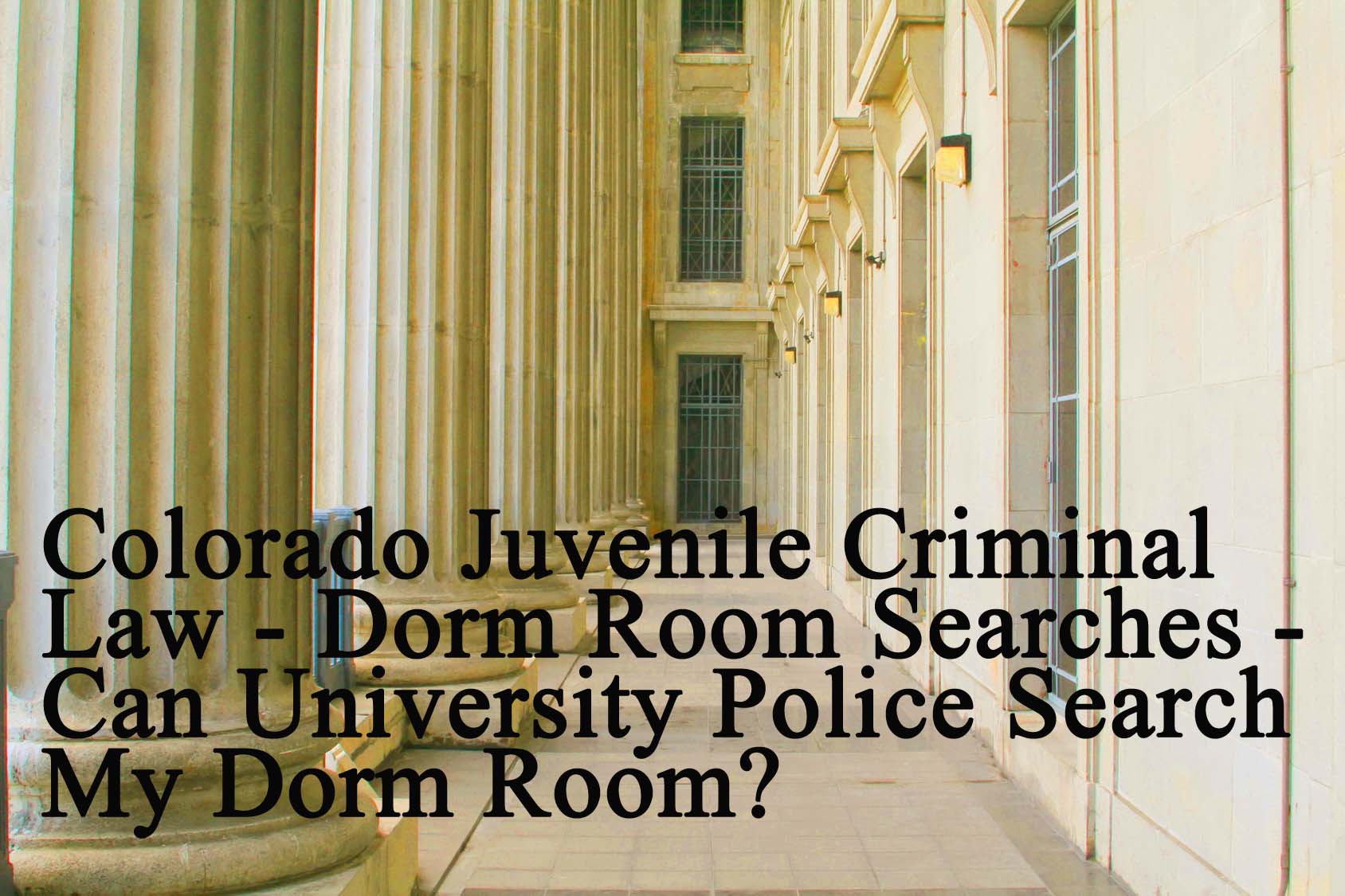
Other Articles of Interest:
- Colorado Criminal Law – Can The Police Detain Me While A Search Warrant Is Executed?
- Colorado Criminal Law – Understanding Searches Of Juveniles In Schools
- Attorney Profile
- Colorado Criminal Law – A Guide To Police Body Cameras In Colorado Criminal Cases
- Colorado Juvenile Criminal Law – Why Children In Colorado Juvenile Court Should Be Unshackled – Unchained












